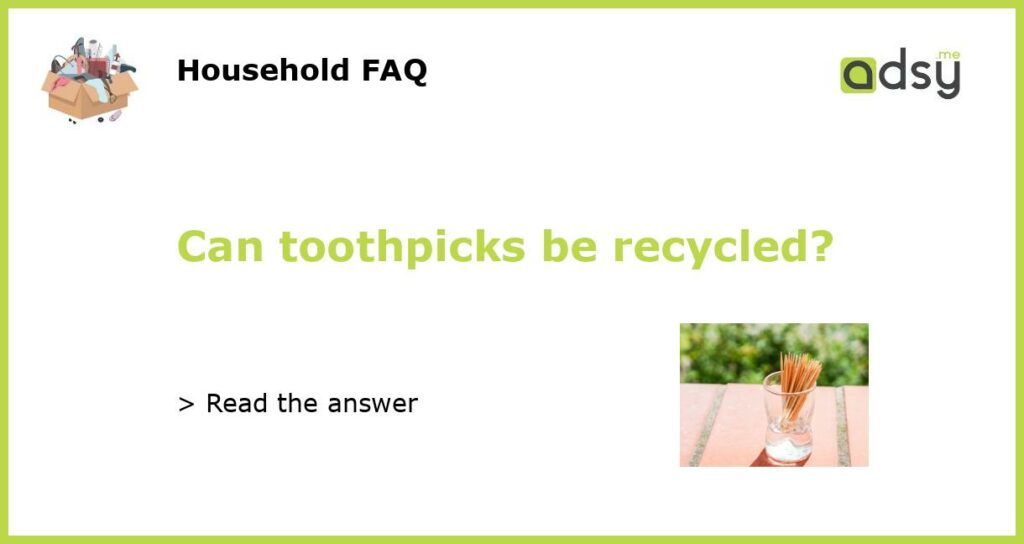Yes, toothpicks can be recycled
When it comes to recycling, toothpicks are often overlooked. Due to their small size and the materials they are made from, many people assume that toothpicks cannot be recycled. However, recycling toothpicks is possible, and there are several ways to go about it.
Why recycle toothpicks?
Before delving into the process of recycling toothpicks, it’s important to understand why it is important to recycle them. Toothpicks are typically made from wood, which is a renewable resource. By recycling toothpicks, we can minimize the demand for new wood, reduce deforestation, and lessen the environmental impact of toothpick production. Recycling toothpicks also helps to reduce the amount of waste that ends up in landfills, contributing to a more sustainable and eco-friendly future.
How to recycle toothpicks
One way to recycle toothpicks is by composting them. If the toothpicks are made from natural materials, such as bamboo or wood, they can be added to a compost pile or bin. Over time, the toothpicks will break down and become part of the compost, which can be used to enrich soil in gardens or for other purposes.
Another option is to check if your local recycling facility accepts toothpicks in their recycling program. While this may vary depending on your location, some recycling centers have the ability to process small wooden items like toothpicks. Make sure to check with your local recycling facility to determine if they accept toothpicks and if there are any specific guidelines for recycling them.
If you are unable to compost or recycle your toothpicks through local facilities, another option is to repurpose them. Toothpicks can be used for various arts and crafts projects, such as mini sculptures or decor. Get creative and find ways to reuse toothpicks in your own home or donate them to schools or community centers for art projects.
Benefits of recycling toothpicks
Recycling toothpicks offers several benefits for the environment and society as a whole. By recycling, we reduce the amount of waste going to landfills, ultimately reducing the need for additional landfill space. This helps to conserve natural resources and protect the environment from the negative impacts of waste disposal.
Recycling toothpicks also promotes sustainability by reducing the demand for new materials. As mentioned earlier, toothpicks are often made from wood, which is a valuable and renewable resource. By recycling toothpicks, we can conserve wood and minimize the need for deforestation, protecting natural habitats and ecosystems.
Contrary to popular belief, toothpicks can indeed be recycled. Whether through composting, local recycling facilities, or repurposing, there are various options available to recycle toothpicks and contribute to a more sustainable future. By recycling toothpicks, we can reduce waste, conserve resources, and minimize the environmental impact of toothpick production. So next time you think about tossing a used toothpick, consider recycling it instead.




![Gusto [1500 Count] Bamboo Wooden Toothpicks Wood Round Single-Point Tooth Picks - Formerly Comfy Package](https://m.media-amazon.com/images/I/51iQ4iRG24L.jpg)

